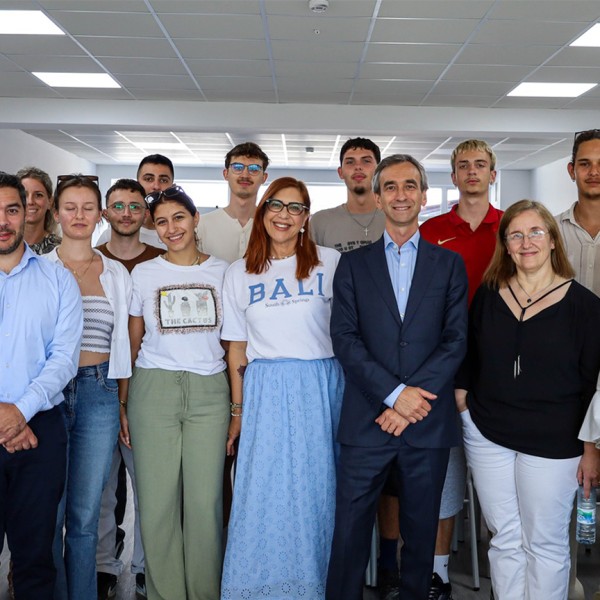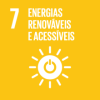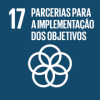
BIP on Housing Policies for Inclusive Cities at ULusófona
Hybrid event promotes reflection and solutions to contemporary housing challenges
Sustainable Development Goals (SDG)







Lusófona University - Porto University Centre hosted the short course entitled "Housing Policy Design for an Inclusive City" from 7 to 11 July. The course, part of the Erasmus+ consortium "Right to the City," aimed to apply the "design thinking" methodology to reflect on and develop housing policies addressing housing issues and promoting social inclusion. Throughout the week, students from various countries such as Spain, Croatia, and Cyprus had the opportunity to explore the specific needs and vulnerabilities of different social groups, fostering an environment of collaboration and exchange of ideas.
The event opened with a warm welcome in the University's main hall, where Professor Maria do Rosário Anjos, from the Faculty of Law, greeted the participants, highlighting the importance of cultural and academic exchange. The programme included visits to institutions such as DOMUS SOCIAL and Santa Casa da Misericórdia do Porto, where participants could observe housing policies in practice.
One of the highlights of the course was the contribution of Porto’s Deputy Mayor, Filipe Araújo, who shared the municipality’s vision for an inclusive and sustainable city. Araújo stressed the importance of leaving no one behind, presenting projects aimed at expanding green areas and promoting electric transport, which contributed to Porto being recognised by the European Union as a carbon-neutral city. The event also featured the participation of Daniel Freitas, Director for Carbon Neutrality at Porto City Council, who joined online to discuss the relevance of sustainable policies in housing.
Participants also engaged in intensive working sessions, forming groups to develop housing policy proposals. The "design thinking" methodology was applied to foster creativity and innovation, allowing students to apply theoretical knowledge to practical challenges, such as housing for young people, the elderly, or people experiencing homelessness.
The event concluded with the presentation of the final proposals from the working groups, where integrated and sustainable solutions for contemporary housing challenges were discussed. Professor Cândida Manuel, from the Faculty of Natural Sciences, Engineering and Technologies, moderated the discussions, which emphasised the importance of interdisciplinarity and collaboration between different fields of knowledge.
This Blended Intensive Programme not only promoted the development of practical and theoretical skills but also strengthened the network between students and professionals from various institutions, contributing to the formation of a new generation of housing policy specialists.
Lusófona University reaffirms its commitment to promoting a fairer and more inclusive society through education and research, hoping that the outcomes of this course will have a positive impact on housing policies in Portugal and beyond.
See photos of the event on ULusófona's Facebook page
Coverage
Paulo Renato and Catarina Machado
Editing
Paulo Renato
Text
Catarina Machado
Other News
- ULusófona Professor Renews Role as Animal Ombudsman
- Call for applications for two doctoral scholarships at CICANT
- ULusófona/CICANT joins UNESCO Alliance for Media Literacy
- 2025 Structural Health Monitoring Summer Course Concludes Successfully
- NECS highlights intersections between cinema and immersive technologies










